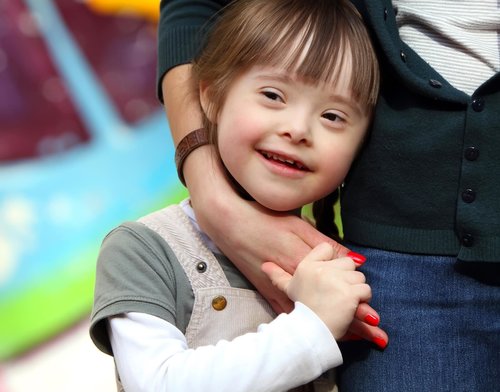About one in 700 children are born with the extra chromosome that causes Down syndrome. While a person with Down syndrome may lead a full and joyful life, they will experience some level of physical, mental, and social difficulties compared to the average person. A child with Down syndrome will encounter challenges ranging from trouble eating and speaking to learning disabilities and diminished fine motor skills. Fortunately, a combination of occupational therapies and government assistance can help.
Early Age Down Syndrome Treatment in San Diego
The age of 0 to 3 years is a critical developmental time for all children, and a child with Down’s Syndrome will be no different. While social and medical researchers have developed approaches to speech, physical and occupational therapy that may help children achieve a greater degree of independence than ever before, the best time to begin the process of helping a child with Down syndrome is early on.
Beginning with infancy, undeveloped muscle tone and protruding tongue are common traits that make it difficult for a child with Down syndrome to swallow. Engaging the child with occupational therapy as soon as possible may help overcome this problem, while the exercises also can prepare the child to work through delayed speech development later one.
Sign Language for Children With Down Syndrome
Many parents begin teaching their infant with Down syndrome a simple sign language, so the child may be able to communicate before they overcome the challenge of speech. The goal is to help a baby feel loved and engaged early on, which may help develop confidence as the young child grows older, and it becomes time to foster greater hand-eye coordination and social skills.
Government Assistance Early Intervention Programs
This concept is called early intervention, and it’s supported by government assistance programs. In California, the Department of Developmental Services offers what it calls the Early Start program to special needs children in the first 36 months, and children with Down syndrome qualify. The program helps establish an Individualized Family Service Plan designed to address the issues specific to each child, and provides support to parents, including medical procedures and devices, speech therapy, physical therapy, and occupational therapy.
Reach Out to Other Parents of Children With Down Syndrome
For new parents looking to navigate the challenges of caring for a child with Down syndrome, it can be helpful to reach out to a network of other parents for advice and social support. While it can be tough for a parent to reconcile themselves to the challenges of raising a child with Down syndrome, the bevy of community support available can help both parents and children surmount these early hurdles.
Help a Child With Down Syndrome With Love
In addition to working with a qualified occupational therapist, the best way to help a child with Down syndrome reach his or her full potential is for parents to interact lovingly with their child. Play, smile, and laugh. Engage in responsive teaching by helping the child pursue his or her own interests and abilities. Have fun together exploring different environments, experiencing different sights, sounds, textures, and other sensory input in a positive way.

